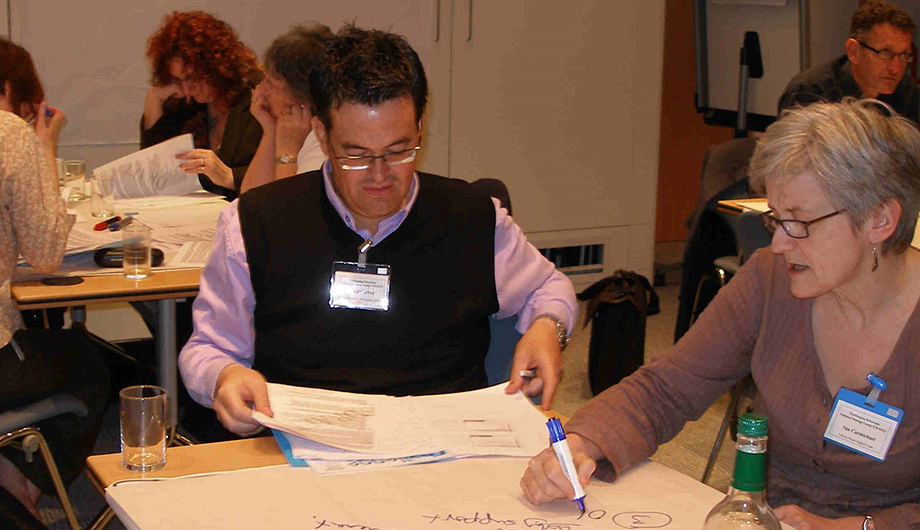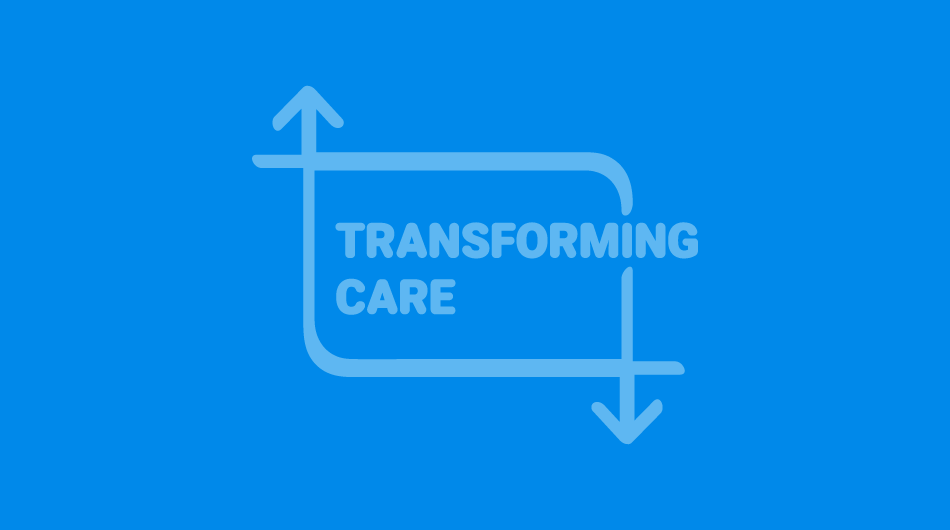
News
The CBF writes topical articles regularly and produces three newsletters a year, providing opinion and resources for families and professionals.

The CBF aims to improve lives for individuals with severe learning disabilities who display behaviour that challenges through our project work, using new approaches and encouraging others to learn from this work and improve their practices.
The CBF contributed to the NHSE Advocacy project which focused on reviewing advocacy for individuals with learning disabilities and/or autism in inpatient units. The national work has been led and coordinated by the National Development Team for Inclusion (NDTi) and includes input from a range of organisations, including the CBF.
The CBF provided input about family advocacy – including family experiences of being advocates for their adult relative, and also their experiences of receiving support from advocacy organisations in that role. These experiences were gathered via a family carer survey, and a focus group. Other organisations (e.g., Bringing Us Together) have been asked to look at the experiences of young people with disabilities, and advocacy organisations have been asked to provide experiences of paid advocates. A report has been written which compiles this information as well as recommendations from organisations, and this page will be updated once the report is published.
In addition to this work the CBF produced an online advocacy resource which includes a list of organisations that can support parent carers of adult inpatients and the community in their roles as advocates. The resource is available New advocacy resource – supporting organisations – Challenging Behaviour Foundation
The CBF has also worked with two Advocacy organisation in the North of England (identified by NHSE) and the family carer advocates they support to identify gaps in skills and knowledge and develop a resource. The resource includes practical and specialist information for family carers and advocates around advocacy support. A link to the resource will be included here once it is available.
More information about rights and advocacy
The CBF worked with NHSE&I to improve understanding of the role of Learning Disability Nurses and raise awareness of how they can be accessed by families. This involved piloting a workshop in a locality that bought together learning disability nurses and families in that area to discuss and agree actions to address the issues and challenges in working together. Following a series of workshops held in early 2020, the CBF identified the need to improve information available on how families with relatives with severe learning disabilities can access a range of support from Learning Disability Nurses. The CBF produced a Learning Disability Nursing resource which was presented at the annual Learning Disability Nursing Symposium in December 2020.
The findings from this workshop were presented and considered at the CBNSG in June 2022, in a workshop focussing on Collaborative working to meet health needs in the community: Family carers and Learning Disability nursing working together.
NHS England commissioned a project to help scope the availability of trauma support for family carers of children and adults with learning disabilities and/or autism; what families want, and professional knowledge and awareness.
The Challenging Behaviour Foundation, Respond, and the Tizard Centre came together to work on a joint approach to the three strands of work:
The CBF role in this project was mainly focussed on providing family carer input and experiences to the whole project, including the evidence base for need for trauma based support for families and what they would find helpful.
The Family Carer Research Alliance brought together family carers of people with a learning or developmental disability and researchers to develop and discuss research.
We believe that parents, grandparents, siblings, and other family members:
However, Family Carers of people with learning or developmental disabilities are often only partially represented in research, if at all. They are an under-utilised and under-supported group who may experience frustration at the gap between research, policy and lived experience.
Our core values include flexibility, inclusivity, and the importance of co-production, recognising the often under-utilised resources family carers bring to research and their unique perspectives. We embrace diversity and wish to ensure we represent the needs of everyone including different roles, backgrounds, experiences, and expertise.
By working together, we believe we can ensure research and other related projects are meaningful, practical and of high quality. By increasing knowledge and active participation in research we as a group can:
The core group met regularly to discuss issues regarding relevant research – new, ongoing, and published. They considered how to publicise research in a way that reaches families as well as bringing researchers into the group to discuss particular pieces of research.
This group is on hold due to capacity and funding. If you’d like to find out more, please email info@thecbf.org.uk
Following the Winterbourne View abuse scandal, the CBF worked with other voluntary organisations for 4 years to promote involvement of Experts By Experience (ExE) within the work of the Care Quality Commission. We were the support organisation for ExEs who are family carers of adult relatives (aged 16 years old or above) with a learning disability who have behaviour described as challenging and/or mental health needs; or family carers of adult relatives (aged 16 years old or above) with profound and multiple learning disabilities.
The CBF was asked to step in at short notice to do this work for the CQC Learning Disability Review (LDR) following the BBC Panorama programme about Winterbourne View. This was important work that identified significant failings in services at both a systemic and individual level. Family carer ExEs identified and reported a range of issues (CBF Learning Disability Review Report) and contributed to the 3 lives report, published in 2014, which identifies common themes and actions that need to be taken following hearing moving stories from three individuals who were failed by health and care systems in the UK. CBF has and will continue to follow these up for individuals and campaign for systemic change.
This work identified the value of including and supporting family carers with lived experience within the regulation process. Over the 4 years, ExEs moved from being part of inspection teams to also being included in (but not limited to) registration processes and delivering training to inspectors. ExEs with lived experience demonstrated their commitment to improving outcomes for individuals who use services. Though the CBF’s involvement in the project came to an end in 2016, we very much hope that CQC will ensure that this type of work continues, and that this group of ExEs are valued, supported, and listened to in the drive for better lives for people with learning disabilities.
The Medway Advocacy Project was a demonstration project exploring how effective advocacy can be offered to individuals with learning disabilities whose behaviour is described as challenging, as issues surrounding their support can be extremely complex. The Project provided advocates with specialist training and support to enable them to work effectively with these individuals.
The project paired advocates with adults with learning disabilities living in Kent and Medway. All were identified as potentially benefiting from advocacy support, as they faced major life changes. Their advocates supported them with a range of issues including:
The advocates involved in the project developed a rapport with the individuals and advocated for them on a long-term basis. This enabled them to understand the person, communicate with their family advocates and paid support teams, and speak on their behalf regarding complex and ongoing issues. The project demonstrated the value of this approach to independent advocacy, compared to short-term, issue specific advocacy.
A Commissioners guide to advocacy services shares what was learnt in the project. Read the project evaluation.
The work of SHIEC has now ended and has undergone a full review and evaluation. Read the report here. It also contains useful resources in the Appendices.
The ‘Sustainable Hub of Innovative Employment for people with Complex Needs’ (SHIEC) project aimed to support genuine paid employment for people with learning disabilities who have additional complex needs. This included people with profound and multiple learning disabilities, those with severe learning disabilities whose behaviour challenges, and people with learning disabilities and histories of mental health problems or offending behaviour. SHIEC was a hub of individuals and organisations in the South East who are working together to achieve this.
The project aimed to identify and support a range of employers to employ adults with learning disabilities and additional complex needs and to utilise existing employment support and pathways and make these work for everyone. A supportive network comprising of provider organisations, educational services, family carers, policy makers and academics meet on a regular basis to develop and share materials and to discuss progress, barriers and solutions regarding pathways to employment for people with complex needs.

The CBF writes topical articles regularly and produces three newsletters a year, providing opinion and resources for families and professionals.

The CBF operates an email network for professionals working in the field of challenging behaviour associated with severe learning disabilities.

This page askes the question 'What is Transforming Care?' It includes a summary of the history of Transforming Care, and details of how the CBF has been involved.